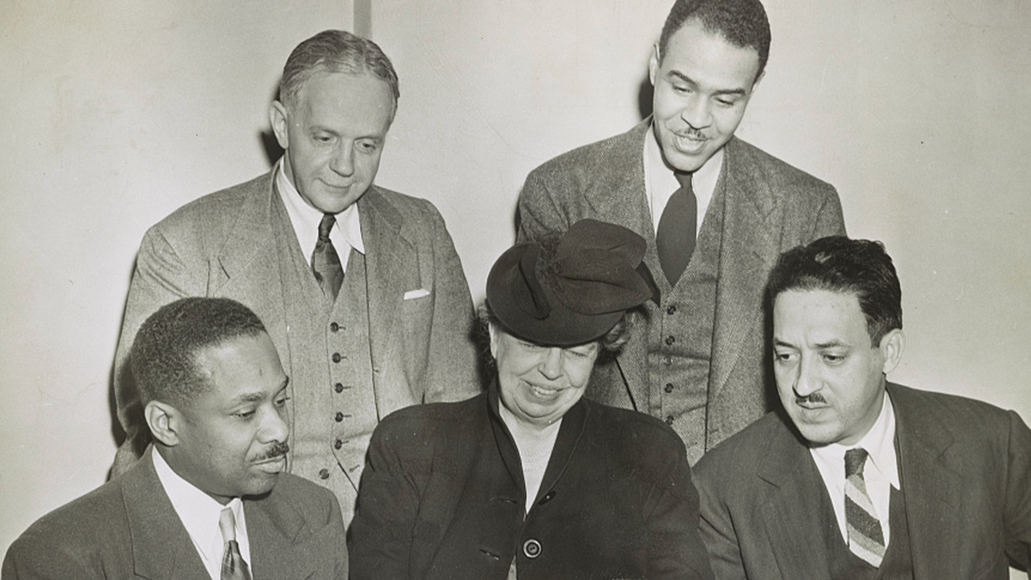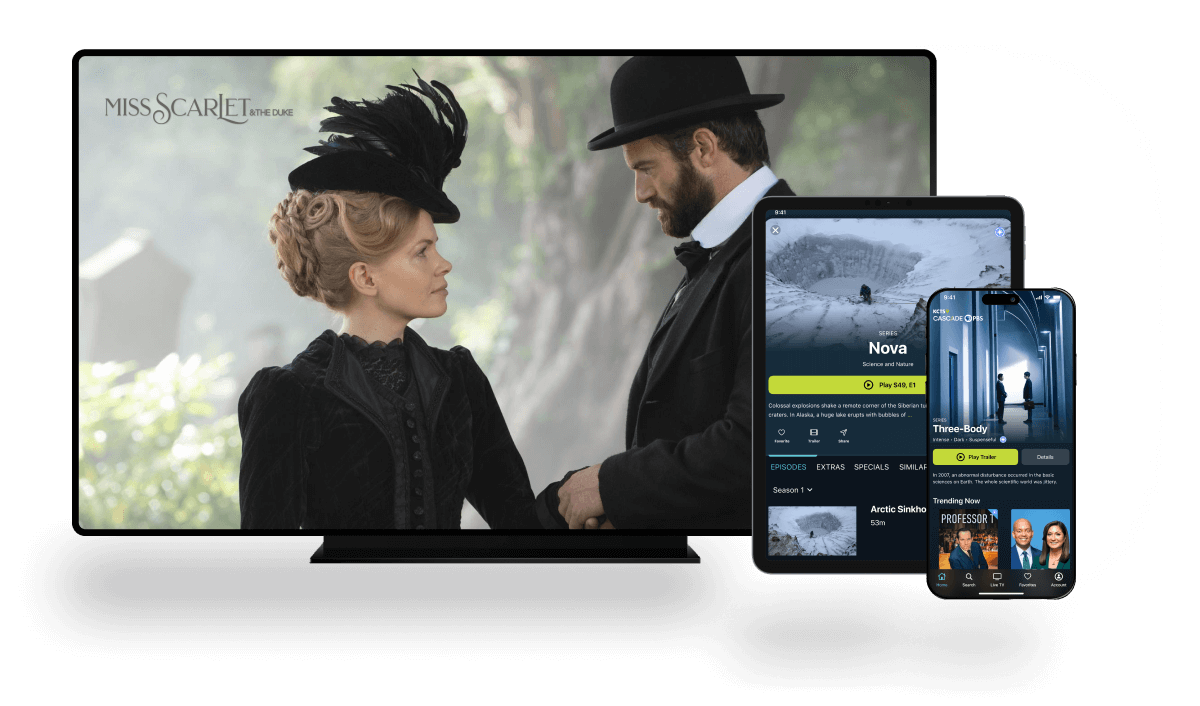
American Experience
The Ballot or the Bullet
Show title: American Experience
Video title: The Ballot or the Bullet
Video duration: 2m 29sVideo description: Malcolm X called for an aggressive plan for black Americans to gain political power, and move toward total control of their communities. He started a voter registration drive and advocated black nationalism as an economic philosophy.
Watch Preview

Into the Amazon: Trailer
30s
The remarkable story of the journey taken by President Theodore Roosevelt and legendary Brazilian explorer Candido Rondon into the heart of the South American rainforest to chart an unexplored tributary of the Amazon in 1914.
Watch Clip

The Hippie Tour
1m 8s
Teenie bopper, speed, stoned, turn on. These were just a few of the words that were defined for tourists as they took a bus ride down Haight Street in San Francisco during 1967 — the Summer of Love.
Watch Clip

Summer of Love: Chapter 1
8m
In January 1967, the thousands of youth already in San Francisco descended on Golden Gate Park for a Human Be-In. The media flocked to the event, putting hippies in the national spotlight for the first time. And once the press offered a window into the world of Haight Ashbury, even more young people flooded in.
Watch Clip

Free Love & Free Stuff
2m 24s
With schools out in the summer of 1967, thrill-seekers flooded into San Francisco. When they arrived in the Haight and Ashbury neighborhood, they found a world where free love and free clothing was the norm. Joel Selvin reflects in the film: “The Free Store, what fun that was. I mean, just the idea was liberating, a place where they gave you things where money was no longer the relevant issue.”
Watch Clip

From the Vault | Amelia Earhart
48s
At age 23, Amelia Earhart took her first ride in an airplane and knew she had to fly.
Watch Clip

Mind-Altering Drugs
3m 5s
By the mid-1960s, as North Beach became commercialized, baby boomers drawn to a Bohemian lifestyle began moving into a low-rent neighborhood across town, the Haight-Ashbury district. Many began experimenting with communal living in the large Victorian houses of the Haight, and visions of a utopian society began taking shape, enhanced by a mind-altering new drug called LSD, or acid.
Watch Preview

Summer of Love
30s
Summer of Love is a striking picture of San Francisco's Haight Ashbury district during the summer of 1967 — from the utopian beginnings, when peace and love prevailed, to the chaos, unsanitary conditions, and widespread drug use that ultimately signaled the end.
Watch Clip

Mr. Pilates
2m 38s
Joseph Pilates was born in Germany in 1883. Living in England at the outbreak of WWI, Pilates was interned as an “enemy alien.” During his time in the internment camp, he developed a fitness regime for himself and his fellow prisoners. At the end of the war he returned to Germany, where his fitness method, which he called “Contrology,” became popular in the dance community.
Watch Preview

The Great War, Part 3: Trailer
30s
Discover how the violent and bloody conflict transformed the nation forever, as America steps onto the world stage for the first time. But while many heralded the peace, others worried about democracy at home.
Watch Clip

Boot Camp
2m 2s
Composer Peter Rundquist begins his composition process with research of the film topic, and watching the film itself. In this Scene Breakdown, Rundquist explains his approach to scoring a scene from The Great War.
Watch Preview

The Great War, Part 2: Trailer
30s
Follow America’s entry into the war as patriotism sweeps the nation, stifling free speech and dissent. A diverse group of men become the country’s first mass conscripted army, while women continue to demand the vote.
Watch Clip

The Great War: Chapter 1
8m 28s
In the summer of 1917, at docks up and down the eastern seaboard, thousands of American soldiers boarded ships bound for France. They were the vanguard of a new American army, about to enter the most destructive war the world had ever known. For President Woodrow Wilson, the war was a crusade “to make the world safe for democracy,” a chance to transform the international order in America’s image.
Watch Clip

Eddie Rickenbacker: The Ace
1m 40s
Eddie Rickenbacker downed his first German airplane on April 27, 1918, and he never looked back. As Rickenbacker’s score mounted, the public fell in love with him. But unlike some early pilots of the First World War, who had reveled in the image of the gallant, chivalrous airman, Rickenbacker had seen too many friends go down in flames to romanticize combat flying.
Watch Clip

The Great War: Transformed
30s
The Great War tells the rich and complex story of WWI through the voices of nurses, journalists, aviators and the American troops who came to be known as “doughboys.” The series explores the experiences of African American and Latino soldiers, suffragists, Native American “code talkers” and others whose participation in the war to “make the world safe for democracy” has been largely forgotten.
Watch Preview

The Great War, Part 1: Trailer
30s
Explore America’s tortured, nearly three-year journey to war. American neutrality, eroded by reports of German atrocities and submarine attacks on American ships, finally led to Wilson’s proclamation that “the world must be made safe for democracy.”
Watch Clip

Woodrow Wilson: The Decider
1m 12s
For President Woodrow Wilson, the Great War was a crusade “to make the world safe for democracy” — a chance to transform the international order in America’s image. “No one had articulated a kind of vision of America as a global citizen,” says filmmaker Stephen Ives. But at the close of the war, Wilson’s arrogance and inflexibility ultimately undermined his own lofty goals.
Watch Clip

Ralph John: The Soldier
1m 38s
Just a few months before he jumped off with the first wave of the Meuse-Argonne offensive, Private Ralph John had been working on his family’s farm in McIntosh, South Dakota. His training as a soldier consisted of two days’ practice with a rifle, and a short stint driving a bayonet into a mannequin. Then he was shipped out, handed a gas mask, and sent into battle.
Watch Clip

The Great War: Why we made it
2m 24s
The Great War is a three-part, six-hour look at the First World War—a battle that fundamentally transformed America’s place in the world, and its life at home. American Experience Executive Producer Mark Samels discusses the film and why we made it—explaining that you cannot understand the world we live in today without understanding the Great War.
Watch Clip

George Creel: The Salesman
1m 37s
When Woodrow Wilson ran for reelection in 1916, he did so with the slogan “He Kept Us Out of War.” In 1917, when U.S. entry into the First World War seemed inevitable, Wilson faced the enormous task of convincing the American people to support the war efforts. He turned to George Creel, who headed up the Committee on Public Information, and launched a massive propaganda campaign to sell the war.
Pagination
Supported by










